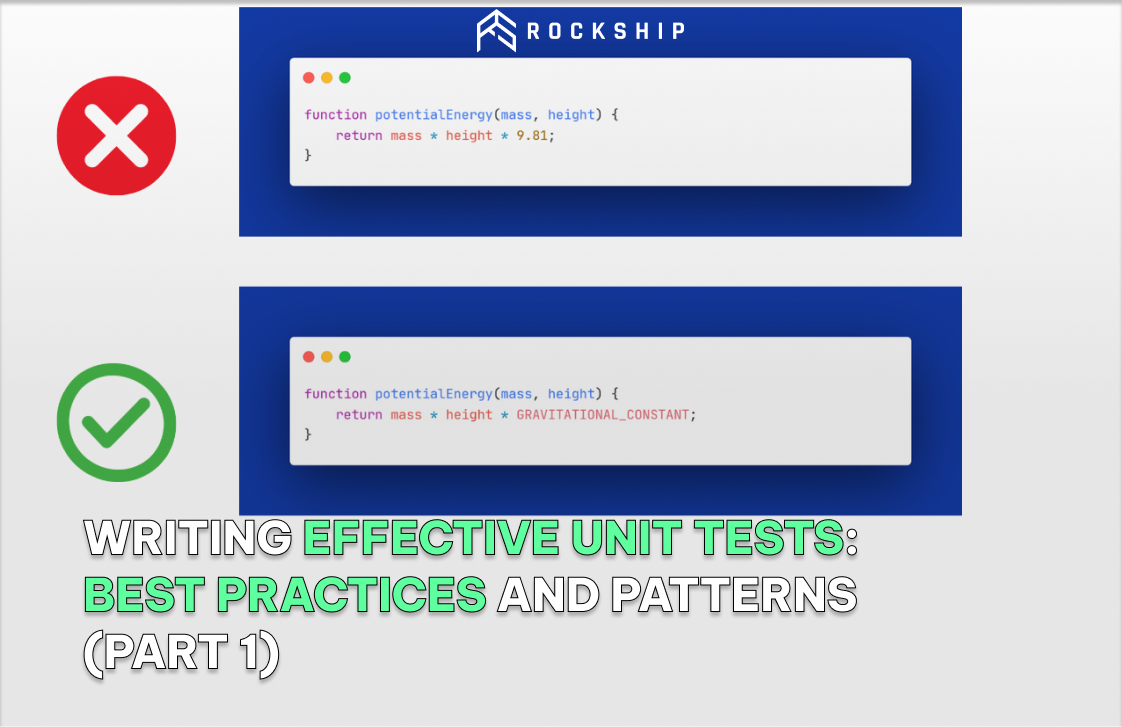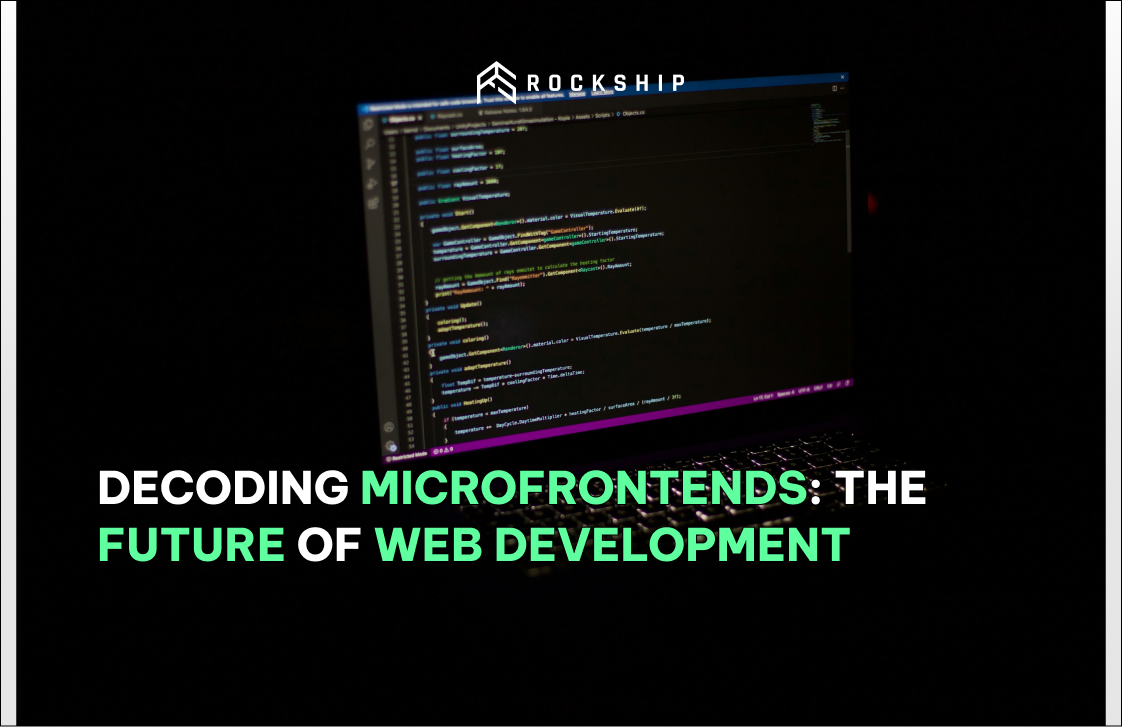On the race to digital transformation in the hospitality industry, having a seamless and efficient hotel booking application is a game-changer. For those not in the loop, developing such applications has become more accessible, thanks to the advent of low code platforms. These platforms provide a simplified way to create applications with minimal manual coding. If you're in the market for a tool to develop a hotel booking application, here are the top 5 low code platforms you should consider:
1. Wix Corvid (Velo)
Velo by Wix is an innovative product that lets you build robust web applications with zero setup. Work in Wix's visual builder, add custom functionality and interactions using Velo APIs, and enjoy serverless coding in both the front-end and backend. With Velo, your web app can be up and running in a fraction of the time it would normally take you.
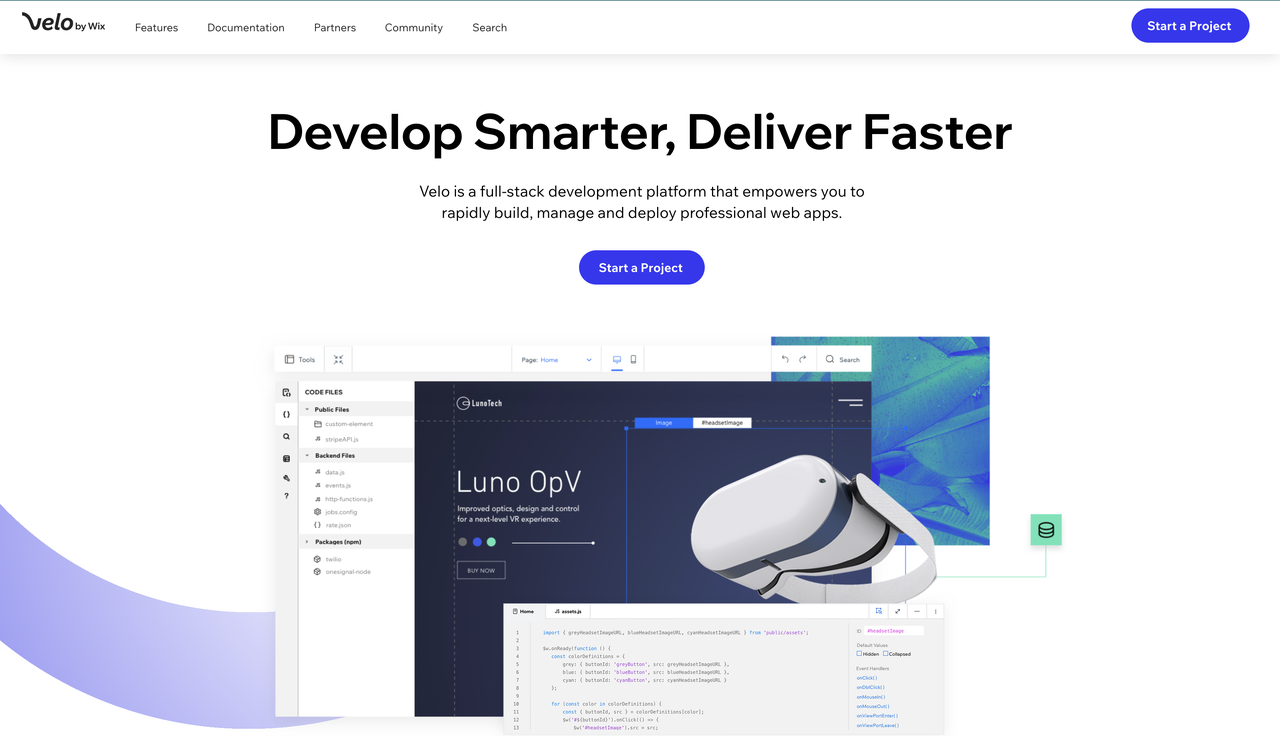
Advantages:
- Intuitive User Experience: No steep learning curve, thanks to its drag-and-drop interface.
- Integrated Ecosystem: Direct access to Wix's suite of tools, from CRM to marketing modules.
- Easy to use with clear information: Having differences in business or website types for clients to choose, setting up your future website with detailed methods including: setting up custom domain, setting up payment,...
- Variety of templates to choose from or even custom from your passion: With a plethora of templates available, businesses and individuals can find a design that closely matches their vision. This initial alignment allows for quicker deployment and ensures that the end website feels personal and authentic to the brand.
Disadvantages:
-
Limited Customization:
- Wix Corvid's visual development approach is designed to be user-friendly, making it accessible to those with little to no coding experience. However, it may not provide the same level of customization and flexibility as traditional coding. More complex or highly specialized features may be challenging to implement.
- Advanced customization often requires coding skills, and while Corvid allows you to incorporate server-side code using JavaScript, it may not offer the same level of control and flexibility as coding from scratch. Complex business logic or unique functionality may be limited by the platform's constraints.
-
Potential Performance Lags:
- Vast booking systems, which handle a large amount of data, user interactions, and real-time updates, demand robust performance and scalability. Wix Corvid is hosted on the Wix platform, which might not be the most robust option for extremely high-traffic or data-intensive applications.
- Wix Corvid's serverless architecture means that the performance and scalability of your application are tied to Wix's infrastructure. While it can handle moderate traffic and data loads, it may face challenges when dealing with very high levels of usage, which can result in performance lags or slowdowns.
Operating Cost: Starts with a freemium model, with premium features pushing the costs between $20 to $500 monthly.
Maintenance: Wix handles the lion's share: hosting, security, and platform updates. Users may need to spend on occasional feature updates.
Time to Build: A simple booking system can go live within days to weeks, based on intricacy and integration.
2. Appy Pie
Appy Pie is a leading no-code development platform that allows individuals and businesses to craft functional mobile and web applications with ease. Prioritizing simplicity and accessibility, Appy Pie provides an intuitive drag-and-drop interface, enabling users to bring their app ideas to fruition without delving into complex coding. Ideal for entrepreneurs, small businesses, and hobbyists alike, Appy Pie streamlines the app development journey, making it both time-efficient and cost-effective. With Appy Pie, creating a digital solution, whether for business or personal use, is as easy as pie.
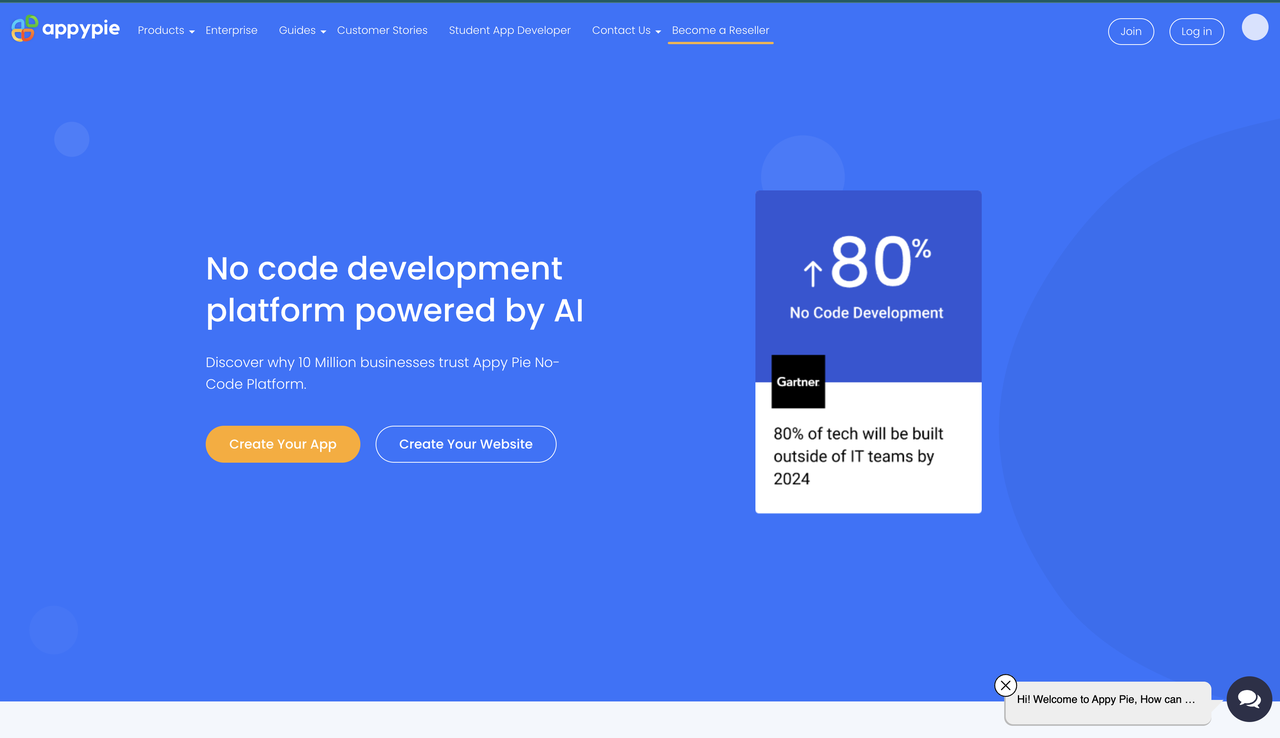
Advantages:
- Zero Coding: Perfect for hoteliers without a tech background.
- Budget-Friendly: Especially designed keeping SMEs in mind.
- Both have functions to design websites and apps
Disadvantages:
- Basic Functionalities: Advanced features might be sparse.
- Integration Challenges: Can be tricky to integrate with some external systems.
- Less suggestions for creating a website
- The time for waiting to set up is quite long, nearly 5 minutes
Operating Cost: Monthly plans range from $18 to $60, varying with added functionalities.
Maintenance: While Appy Pie manages technical maintenance, users should focus on regular content and feature updates.
Time to Build: A rudimentary booking platform can be up in days, but added features might extend it to weeks.
3. Bubble
Bubble is a pioneering no-code platform that empowers individuals and businesses to transform their ideas into interactive web applications. Designed with user-friendliness in mind, Bubble offers a drag-and-drop interface, eliminating the traditional barriers to coding.
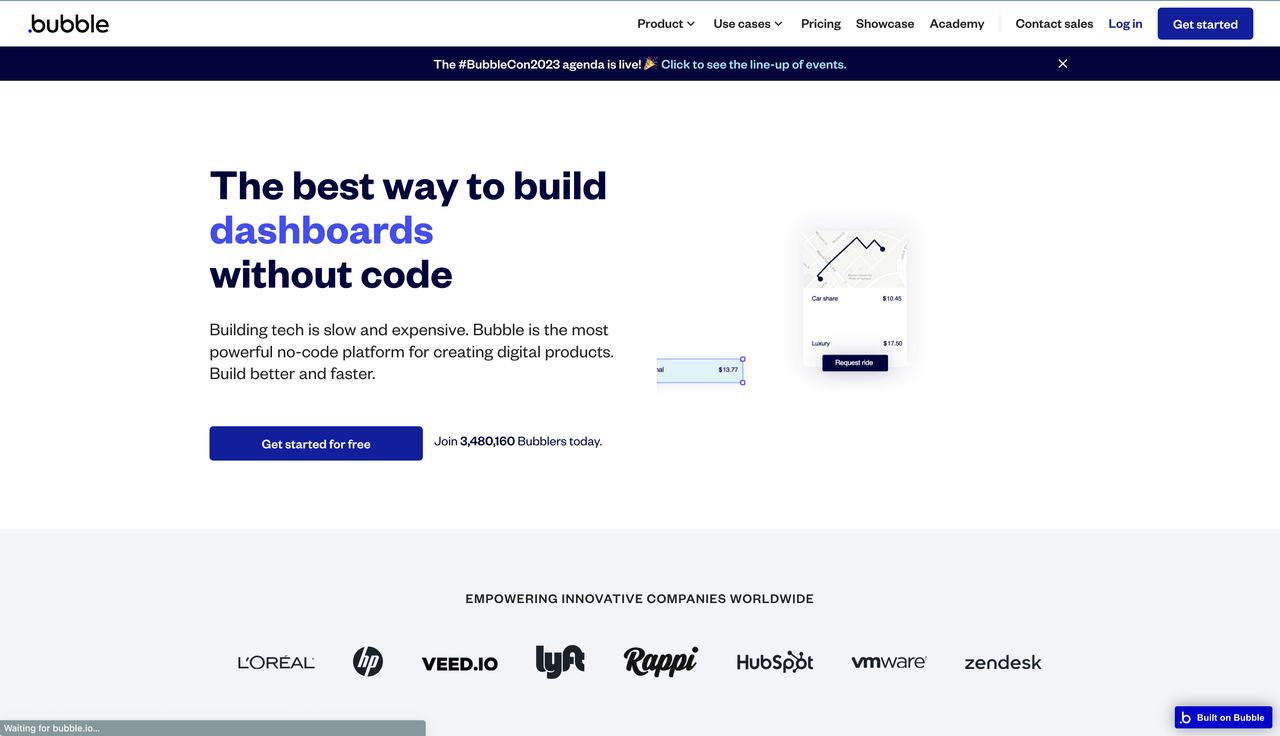
Advantages:
- No-Code Approach: Ideal for non-tech-savvy hoteliers.
- Affordability: Designed with SMEs and startups in mind.
Disadvantages:
- Scalability Concerns: Might face challenges as the hotel expands.
- Performance Issues: Low-code platforms like Bubble often generate code automatically in the background. While this can make development faster and easier, it may result in less efficient code that could lead to performance issues as your application grows. Complex, data-intensive, or high-traffic applications may experience slowdowns or limitations in terms of scalability.
- Limited Customization: Bubble provides a visual interface for building web applications, but it may not offer the level of customization and flexibility required for complex, large-scale projects. As your hotel or business expands, you might need more advanced features, integrations, or customizations that Bubble's low-code platform may struggle to accommodate.
- Not for Highly Complex Apps: There are limitations for intricate applications.
- Lack of Advanced Features: Low-code platforms typically prioritize simplicity and ease of use, which may lead to a lack of advanced features that are necessary for highly complex applications. These could include sophisticated data modeling, advanced security measures, and complex integrations with other systems or APIs. In such cases, you might find yourself hitting the platform's limitations and struggling to implement the required functionality.
- Integration Challenges: Complex applications often require seamless integration with various external systems, databases, and APIs. While low-code platforms like Bubble offer integrations, they may not support the full spectrum of integrations that a complex application may need. Integrating with legacy systems or dealing with custom APIs can be particularly challenging.
Operating Cost: Begins with a free tier, with professional plans starting at $29/month. Complex apps with more users or database needs can cost more.
Maintenance: Bubble takes care of infrastructure. Users should focus on periodic updates and ensuring smooth app operation.
Time to Build: A basic system can be live within days, but feature-rich systems would span several weeks.
4. Betty Blocks
Betty Blocks is an avant-garde no-code platform that empowers businesses to rapidly design and deploy applications without the intricacies of traditional coding. Positioned as a visionary in the realm of application development, Betty Blocks offers a visually-driven interface, facilitating the creation of robust, scalable, and secure applications. From startups to established enterprises, Betty Blocks provides a dynamic solution for those seeking to innovate swiftly in today's digital age. Harness the power of Betty Blocks and usher in a new era of seamless, efficient application development.
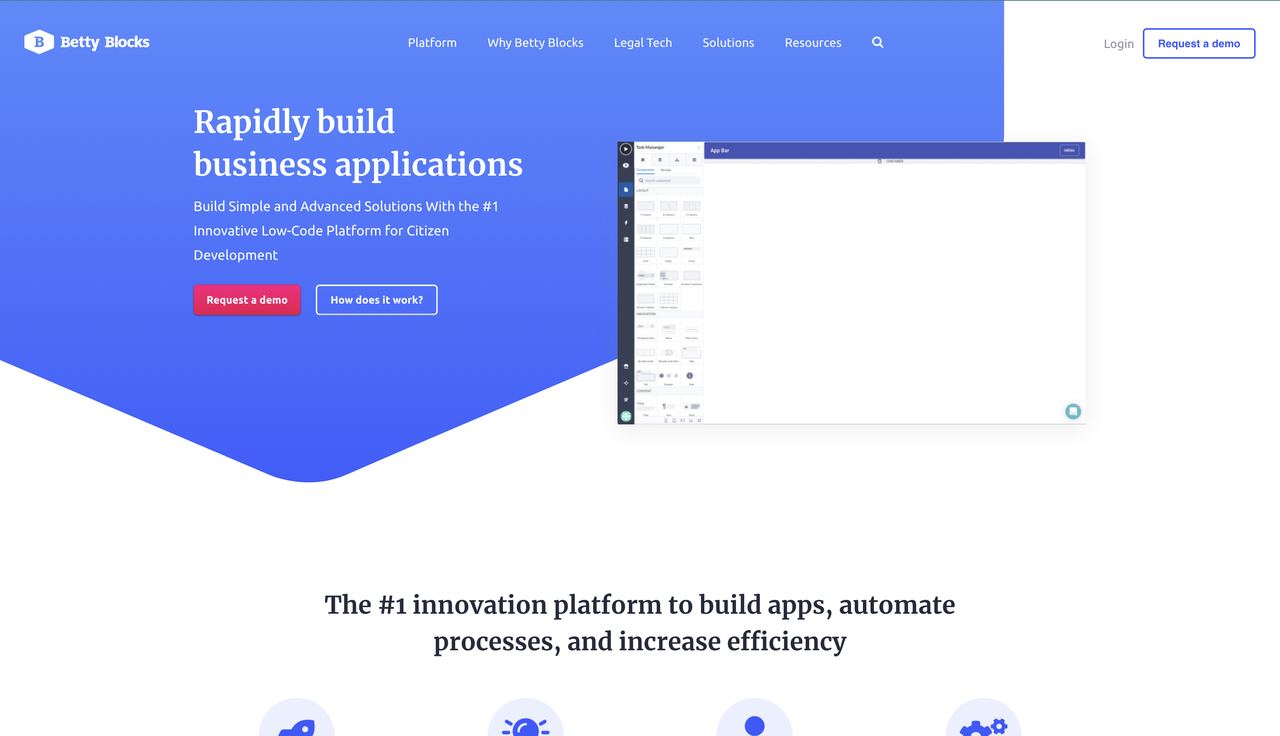
Advantages:
- Visual Development: Transform ideas into apps without delving into codes.
- Scalability: Adapts to growing business needs.
Disadvantages:
- Cost Implications: Might be slightly heavy on the pocket for very small hotels.
- Set-Up Duration: The initial setup might be more prolonged than direct plug-and-play platforms.
Operating Cost: Exact pricing isn’t public, necessitating direct inquiries based on needs.
Maintenance: While the platform manages backend maintenance, users should focus on app updates and refinements.
Time to Build: Depending on intricacies, it can range from a few weeks to several months.
5. Microsoft Power Apps
Power Apps is an applications, services and connectivity and data platform that provides a rapid development environment to build custom applications for your business needs. Using Power Apps, you can quickly build options that align business applications with business data stored in the platform database (Microsoft Dataverse) or in multiple online data sources and in different locations (e.g. SharePoint, Microsoft 365, Dynamics 365, SQL Server, etc.).
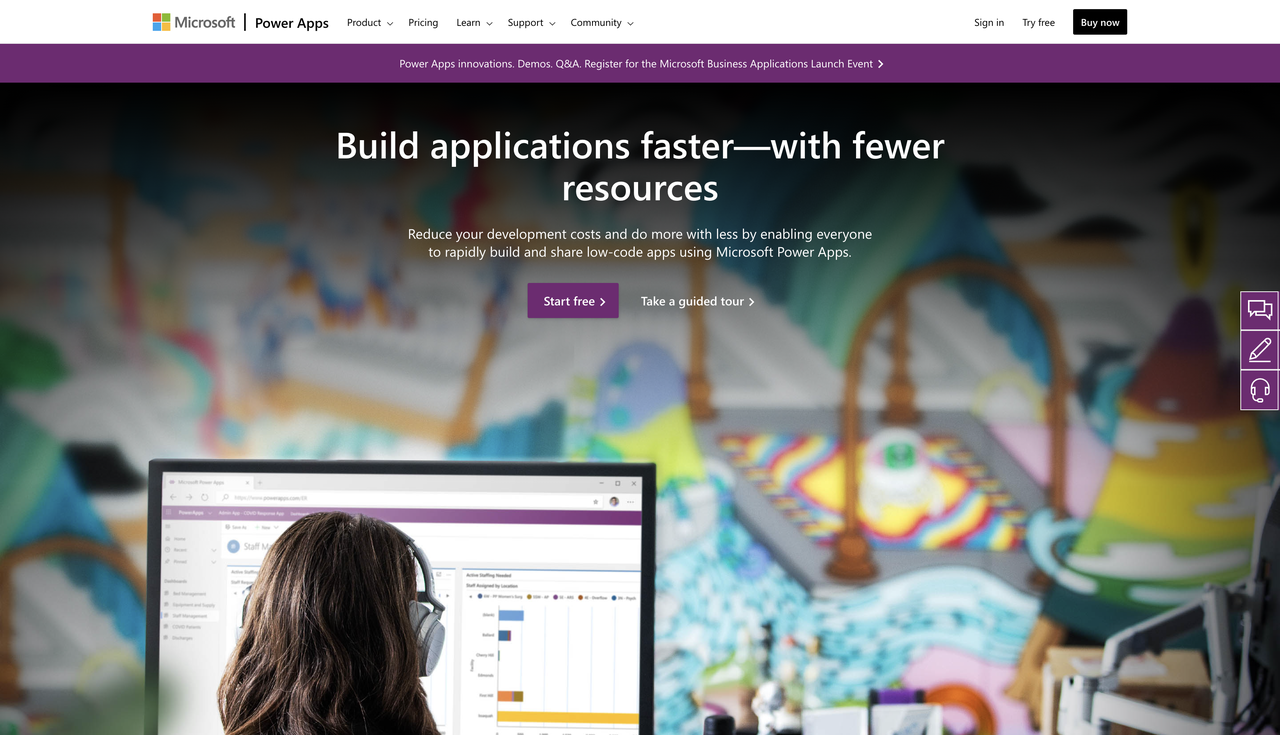
Why it stands out: A part of the Microsoft Power Platform, Power Apps is deeply integrated with other Microsoft services, making it a formidable choice for businesses entrenched in the Microsoft ecosystem.
Everything has two faces, including pros and cons. The pros have been mentioned above through the Why it stands out and now we will move to the cons of this platform:
- Limitations Outside Microsoft Ecosystem: While it integrates well with Microsoft products, it might have limitations with external systems.
- Less Advanced Features: Compared to some other platforms, it might lack some advanced capabilities for more complex applications.
Operating Cost: Prices range from $10/user/month to $40/user/month, based on app usage and functionalities.
Maintenance: Microsoft oversees backend maintenance. User end would involve feature updates and routine checks.
Time to Build: A standard booking app might take several weeks to a couple of months, based on complexity.
Rockship's Story
Rockship is one of the leading companies to get on the low-code development movement in Vietnam. With 6+ years of experience in developing applications for the hospitality industry, our service can help you build custom hospitality applications faster and easier than ever before. We leverage pre-built components to speed up the process and reduce the chances of making errors, while tailoring to your specific needs and requirements.
Chat with Rockship**'s AI Consultant Tool** to receive quotations for your product here
Conclusion: Building Tomorrow, Today
In today's ever-evolving digital landscape, choosing the right platform to bring your application vision to life can be daunting. Each of the platforms discussed – Wix Corvid, Bubble, Appy Pie, Betty Blocks and Microsoft Power Apps – offer a unique set of tools and features tailored to different needs.
Wix Corvid, an extension of the popular Wix platform, offers a harmonious blend of website development with app functionalities. For businesses that prioritize cohesive branding and want an integrated solution for their online presence, Wix Corvid is a compelling choice.
Bubble stands out for its sheer simplicity and is a great fit for those seeking a straightforward approach to web app development, especially if you're just dipping your toes into the digital realm. Its interface is friendly even to absolute beginners, making it a top choice for individual entrepreneurs or SMEs.
Appy Pie, with its emphasis on mobile application development, caters to businesses aiming for a broader reach, especially in mobile-centric markets. Its user-friendly design ensures even those with minimal technical knowledge can craft an app tailored to their requirements.
Betty Blocks, on the other hand, is a powerhouse of functionality, suited for those who envision a more complex application without getting entangled in the intricacies of traditional development. Its robust framework makes it a top contender for businesses that foresee rapid growth or scalability.
Microsoft Power Apps, a gem from the tech giant's suite, offers deep integration with other Microsoft services, making it a formidable choice for businesses rooted in the Microsoft ecosystem. Beyond integration, its rich feature set provides tools for a wide range of application types.
Rockship, with its focus on leveraging pre-built components and customizing your application together, makes it a good choice for those who want to build products tailored to their needs and requirements in a short time, while avoiding the risk of making errors and faults.
In essence, your choice boils down to your specific needs, budget considerations, and future growth plans. By aligning these with the features and strengths of each platform, you're not just choosing a tool but laying the foundation for your digital future. Evaluate, introspect, and then embark on your no-code journey with the platform that resonates most with your vision.


